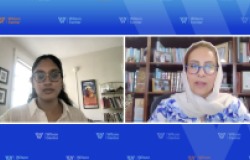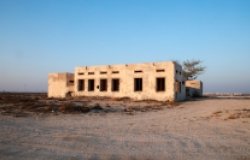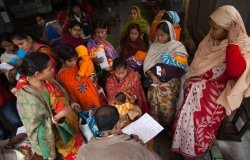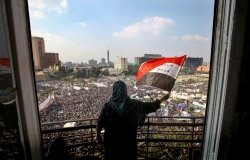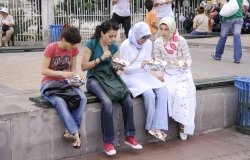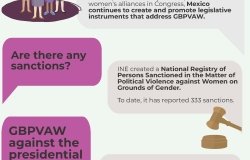Gender and Islam in Africa: Rights, Sexuality, and Law
Gender and Islam in Africa examines ways in which women in Africa are interpreting traditional Islamic concepts in order to empower themselves and their societies. African women, it argues, have promoted the ideals and practices of equality, human rights, and democracy within the framework of Islamic thought, challenging conventional conceptualizations of the religion as gender-constricted and patriarchal.
Overview
In her new book, Margot Badran examines ways in which women in Africa are interpreting traditional Islamic concepts of gender and family in order to empower themselves and their societies.
On September 15, the Middle East Program, Africa Program, and Environmental Change and Security Program of the Woodrow Wilson Center hosted a book launch and discussion with Badran, Wilson Center Senior Scholar and Senior Fellow, Prince Alwaleed bin Talal Center for Muslim Christian Understanding, Georgetown University, about her newly released compilation, Gender and Islam in Africa: Rights, Sexuality and Law.Haleh Esfandiari, Director of the Middle East Program at the Wilson Center, moderated the event.
Badran’s work is composed of essays written by scholars from a wide range of disciplines including history, anthropology, linguistics, gender studies, religious studies, and law, adding to the book’s diversity. She also emphasized the range of ages of the contributing authors, noting that the study benefits from their different perspectives. Badran made specific mention of Northwestern University’s annual conferences held by the Program of African Studies as a contributing force to the book’s publication. Additionally, she included essays from both sub-Saharan and North Africa in order to counter the continent’s traditional division and highlight the reconstruction of gender as an African phenomenon. Structurally, she organized the book into three major topics under which individual essays are grouped: “Women Re/produce Knowledge,” “Re/constructing Women, Gender, and Sexuality,” and “Shar’ia, Family Law, and Activism.”
While the book’s first section handles mainly contemporary topics, it does analyze the impact of the 19th century Nigerian “protofeminist,” Nana Asma’u, on current political and social community leadership. In the book’s second section, Badran highlights one essay which describes the high-profile convictions and sentencing of two poor Nigerian women, Safiyatu Husseini and Amina Lawal, to stoning under the auspices of the hudud laws. Badran used this example in order to demonstrate Muslim-Christian solidarity as all of Nigerian society united across religious divides in opposition to the ruling.
Badran closed the discussion by stressing the increasing role of feminism in Africa at a moment of Islamic resurgence. By encouraging the local as well as national and continental transformation of the Islamic concept of gender, she says African women are creating a new space for themselves.
By Tara Dewan-Czarnecki, Middle East Program
Speaker

Margot Badran
Honorary Fellow, Prince Alwaleed bin Talal Center for Muslim Christian Understanding, Georgetown University
Hosted By

Middle East Program
The Wilson Center’s Middle East Program serves as a crucial resource for the policymaking community and beyond, providing analyses and research that helps inform US foreign policymaking, stimulates public debate, and expands knowledge about issues in the wider Middle East and North Africa (MENA) region. Read more

Africa Program
The Africa Program works to address the most critical issues facing Africa and US-Africa relations, build mutually beneficial US-Africa relations, and enhance knowledge and understanding about Africa in the United States. The Program achieves its mission through in-depth research and analyses, public discussion, working groups, and briefings that bring together policymakers, practitioners, and subject matter experts to analyze and offer practical options for tackling key challenges in Africa and in US-Africa relations. Read more

Environmental Change and Security Program
The Environmental Change and Security Program (ECSP) explores the connections between environmental change, health, and population dynamics and their links to conflict, human insecurity, and foreign policy. Read more
Thank you for your interest in this event. Please send any feedback or questions to our Events staff.


